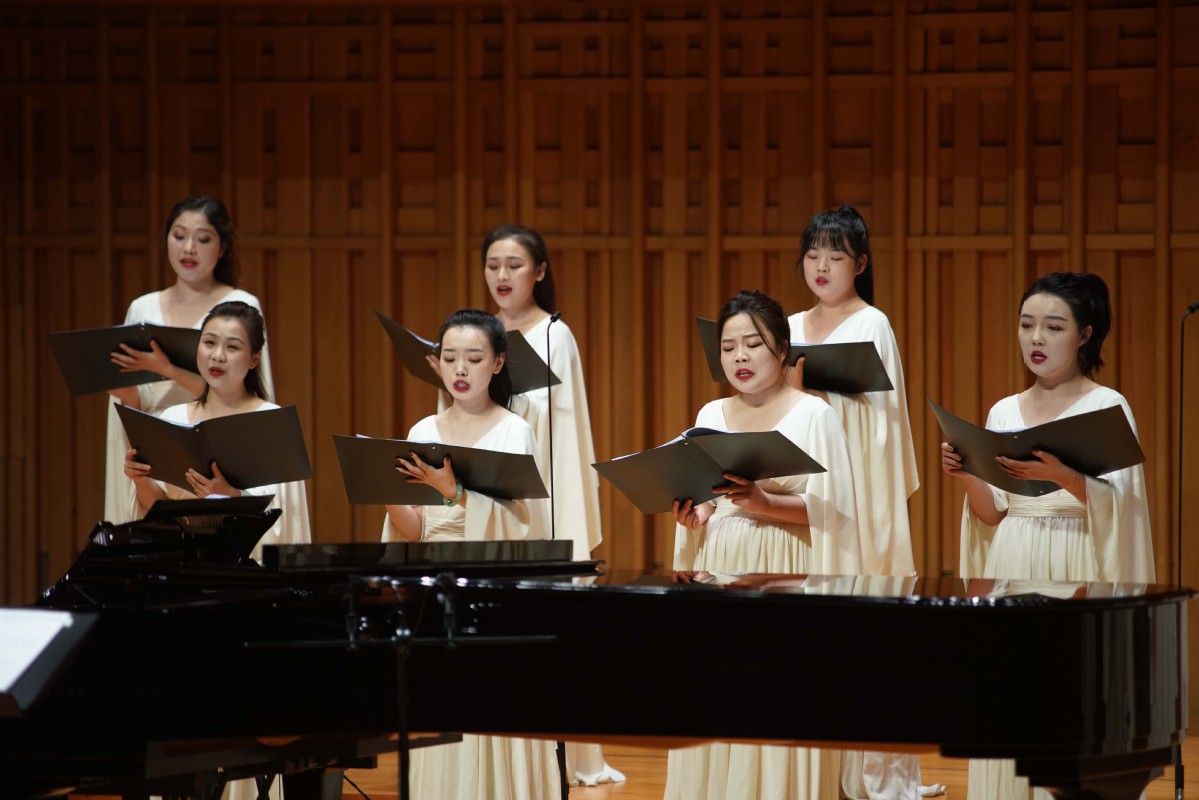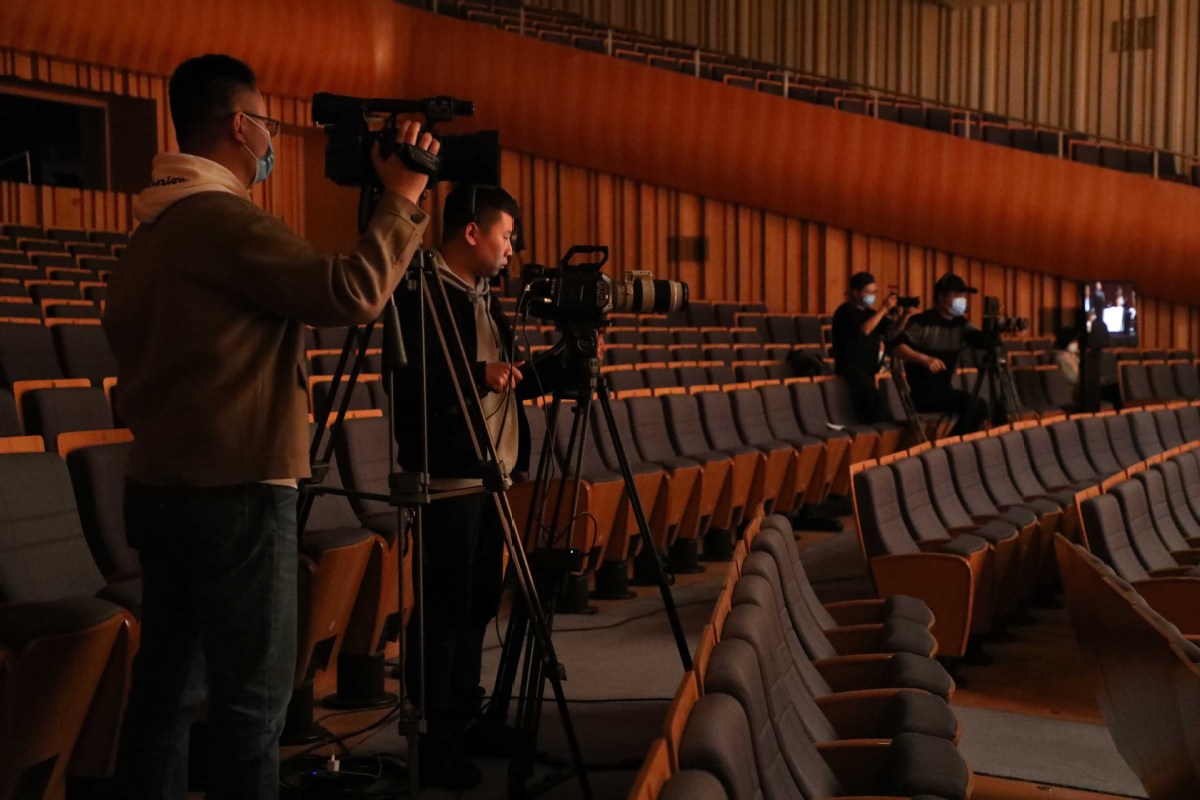Artists adapt to life during the pandemic


Different way
Wang Yixi, a soprano and chorus member who took part in the concert on Oct 31, said, "Although there was no audience in the concert hall, this was a different way to interact with audiences online."
Screens were set up on the stage for the musicians to read comments posted by viewers.
Born and raised in Xianyang, Shaanxi, Wang received vocal training as a teenager and later obtained her bachelor's and master's degrees in voice performance from the Xi'an Conservatory of Music. In 2018, a year after she graduated, Wang joined the chorus of the Xi'an Symphony Orchestra.
It was not the first time she had performed in an empty concert hall, as on March 27 last year, the orchestra and chorus gave their first online concert, which was livestreamed on Bilibili.
Cao said: "Early last year, we, like many other people, went through a very hard time after the coronavirus pandemic hit. Concert halls closed down and performances were canceled. We felt very sad and depressed. Launching online programs seemed to be the only way for us to stay in touch with our audiences."
This year, with the pandemic under control in China, live performances have resumed, including those given by the Xi'an Symphony Orchestra.
Cao said, "Although new cases of COVID-19 again forced us to cancel our performances, we now feel differently about this. Early last year, the orchestra didn't know how to deal with the situation, so musicians worked extremely hard to study technology and launch online programs.
"This time, we feel very confident and relaxed. Everything is in order, and our task is to bring good music to the public."
The first online program Wang took part in featured performances teaching audiences to sing at home during the lockdown.

With her colleagues from the chorus, she streamed a show titled Sing Everyday. Using her phone and laptop, she designed and put on 68 shows at home from February to May last year.
"It was a memorable experience, although at the time I felt very challenged," she said.
"I had no online experience of singing or talking to audiences. What made me very excited was that many people who watched these shows came to see them after the concert hall reopened. They told me they simply wanted to see their 'music teachers', who entertained and kept them company during the pandemic."
Wang added that online programs are no replacements for live concerts, "because without an audience, we lack that extra magic that makes every concert unique."
She added: "We missed the other great participants in our performances-audiences. Taking the stage and feeling the energy of the people out there makes you feel more alive. The emotions of performing in the concert hall with and without an audience are completely different."
Founded in 2012, the Xi'an Symphony Orchestra recruits musicians nationwide, mostly those younger than 30.
To bring classical music closer to the public, it has been looking at different types of performance. For example, the orchestra has held outdoor concerts at landmark venues in Xi'an, such as the Terracotta Warriors Museum, Big Wild Goose Pagoda and Huashan Mountain, one of the five best-known mountains in China.
Cao said that with the pandemic under control in Xi'an, live concerts would resume in the middle of this month.























